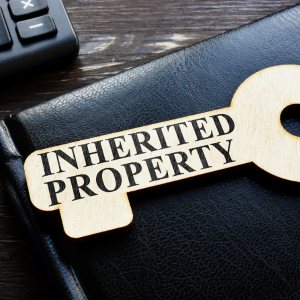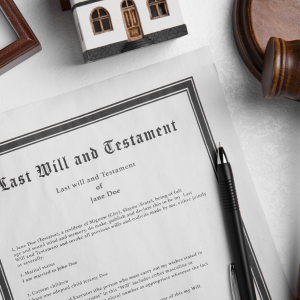
Heirs’ Agreement in Real Estate Sales
What Happens When Heirs Cannot Agree to Sell Property?
Selling property that was left to them can be difficult when heirs disagree. When someone inherits money, family relationships can get complicated, leading to property disputes that must be carefully worked out. If the heirs in North Carolina can’t agree on anything, the property sale might be put off. This disagreement between heirs over NC property could affect when and how much the deal is worth.
Open communication is essential to solving these problems. Families should discuss different points of view to find things they can agree on. A mediator or other neutral third party can help settle disagreements and strengthen weak family ties because of inheritance issues.
Can the Court Force a Sale Without Unanimous Agreement?

The court may step in if the heirs can’t agree on something. Under North Carolina law, a forced sale through a partition action may be necessary if some heirs want to cash out their inheritance. Like real estate law, probate court lets the judicial branch handle property sales without all heirs’ permission.
In North Carolina property disputes, a legal process called a “partition action” lets the court order a sale to ensure that all the heirs get a fair share of the property. Even though this might be controversial, it protects ownership rights and allows people to work things out when they can’t agree.
Strategies to Reach Consensus Among Heirs
People need to plan ahead and actively negotiate to find common ground among heirs. Mediation can help people talk to each other and find solutions. Families can find a solution by focusing on managing the estate and ensuring everyone gets an equal share of the property.
Here are key strategies:
- Open Communication: Encourage people to talk about their goals and concerns openly and honestly.
- Mediation: Have a trained mediator lead the talks and offer solutions.
- Negotiation: Establish an environment in which people are willing to compromise and where the needs of each heir are taken into account.
- Resolution Techniques: Use methods that work for your family to settle disagreements in North Carolina.
Using these strategies, families can obtain consent and effectively manage the property division process, preserving harmony and relationships during estate transitions.
Legal Framework for Selling Inherited Property in North Carolina
How Does Probate Affect the Sale of Inherited Property?

In North Carolina, it is very important to know how probate affects inherited property sales. The probate court ensures that the estate of the person who died is properly settled. This includes looking for a valid will, listing assets and determining their worth, paying off debts and taxes, and giving any remaining assets to heirs.
The probate process can take a long time and be hard to understand, which makes it harder to sell the house quickly. All of the heirs must be found and agree to the sale. If they don’t, the court may have to step in. If you need help managing an estate in North Carolina, a professional can help you through the probate process.
Legal Implications of Selling Without All Heirs’ Consent
Legally, in North Carolina, selling inherited property without the permission of all heirs could get complicated. In most cases, getting permission from the heirs is needed for a real estate deal to go smoothly and avoid problems. However, sales can happen without everyone’s permission, leading to problems like forced sales.
When heirs can’t agree on what to do, they can file a partition lawsuit in North Carolina. This lawsuit asks the court to divide the property or force its sale to split the money from the sale among the heirs. Before you go any further, know the rules in North Carolina about getting heirs’ permission to sell their property.
People in these situations should talk to a real estate lawyer about their options and ensure they follow all the rules set by the law. If you know these things, you can protect your interests and make selling your home go more smoothly, even if things are rough in your family.
Valuing and Preparing Inherited Property for Sale
How to Determine the Fair Market Value?

Finding out how much the inherited property is worth on the market is important for closing the deal. Talk to a licensed real estate professional first for information on the local market. Finding out how much a property is worth can be easier if you get an objective opinion from a certified appraiser. There is a good chance that the listing price your real estate professional comes up with will be fair based on their comparative market analysis (CMA). To get the best return on your investment, you should price the property competitively using these methods. This will attract potential buyers and drive up the price.
Steps to Ensure the Property is Ready for Sale
Steps must be taken to make an inherited home more appealing before it can be put on the market:
- Repairs and Inspections: As you look closely, you can see what repairs are needed. Fixing any structural problems and small damages will greatly increase the property’s value.
- Cleaning and Maintenance: It looks nice when you clean and take care of your property. Maintenance and deep cleaning are important for getting the house ready to sell.
- Renovations and Curb Appeal: Update old areas to make them look more modern. Painting or landscaping the outside of your home can help attract buyers.
- Home Staging: If the house is professionally staged, it can be sold for more than its worth. This stage involves decorating and arranging furniture to bring out the house’s best features.
Follow these tips to make your home stand out in a crowded real estate market and prepare it for showings. As long as you work with a professional team, you can be sure that everything is done with knowledge, improving sales and making you more money.
Financial and Tax Considerations for Heirs
What are the Tax Responsibilities When Selling Inherited Property?

Heirs who sell inherited property in North Carolina face several tax obligations. Understanding capital gains taxes, as well as federal and state taxes, is essential. According to the IRS, the cost basis for tax purposes is the property’s fair market value at the time of the owner’s death. This valuation is critical for calculating potential capital gains tax on the sale.
Selling inherited property requires probate, which has legal and tax compliance implications. Heirs or executors must pay estate taxes and ensure the sale meets all tax regulations. You should consult a tax professional to manage these complexities and avoid unexpected liabilities. This ensures a smooth and compliant property transition.
Handling Financial Proceeds: Distribution Among Heirs
Distributing proceeds from a real estate sale among heirs necessitates careful planning, especially in North Carolina. Executors or trustees manage this process, balancing family relationships while adhering to any wills or trusts to ensure that beneficiaries are fairly divided.
Each heir’s property rights must be respected, and a consensus must be sought to avoid disputes. The probate process lays out steps for settling an estate and encouraging transparent communication among heirs. Legal or financial advisors can help guide this distribution and create an equitable solution that respects each party’s legitimate claim. Planning promotes peaceful property succession for all parties involved.
Conflict Resolution and Mediation in Estate Sales
How Mediation Can Help Resolve Disputes Among Heirs?

Mediation is the only way for heirs to work out their differences regarding real estate and other things left to them. It is a process that helps people who are fighting to talk to each other and reach a settlement by bringing in a neutral third party, like a lawyer. In North Carolina, mediation is often used to settle arguments and fights at estate sales.
Mediation is not as hostile as going to court, so heirs can say what they don’t like and try to find solutions that work for everyone. It encourages people to be honest with each other, which helps family relationships stay strong and settles arguments about who gets what in an inheritance.
Tips for Effective Communication Between Family Members During the Process
It is very important to talk to each other clearly during estate sales when there are family issues. Heirs can talk to each other and come to a better deal in these ways:
- Active Listening: Tell everyone to pay close attention to what the other person is saying and not talk during the conversation. This helps people trust and understand each other more.
- Set Clear Goals: Everyone knows what they want from the talks. Talking about the same things can help keep things on track and clear any confusion.
- Use Neutral Language: When you talk, don’t use words that make you feel bad; they could make things worse. If people use neutral language, they keep talking about how to solve problems instead of who is to blame.
- Seek Professional Guidance: If you and the other person have had trouble settling things, you might want to hire a mediator or facilitator to help you. In North Carolina, this can help bring family property disputes to an end.
- Regular Check-ins: Meet regularly to discuss how things are going and review issues that still need to be resolved. This keeps everyone involved and up to date on what’s going on.
When families use these tips to communicate better, they can work out their differences and settle them without violence. For more help and advice, talk to the Turner Home Team about the mediation options that work for you.
FAQs:
Do all heirs need to agree to sell inherited property in North Carolina?
In North Carolina, all heirs must agree to sell inherited property. If they can’t agree, a court may get involved through a partition action to resolve the dispute.
What happens if one heir disagrees with selling a property in North Carolina?
If an heir disagrees with selling the property, it can stop the sale unless a legal action, like a partition lawsuit, is pursued. This could lead to the court ordering the sale and dividing the proceeds among the heirs.
Are there legal ways to sell inherited property without every heir’s consent in NC?
While it’s best if all heirs consent to the sale, a forced partition sale through the court is an option when they can’t agree. This involves legal proceedings and may require help from a real estate attorney.
What is intestate succession, and how does it affect selling property in North Carolina?
Intestate succession happens when someone dies without a will. It decides how their property is divided among heirs. Selling property can be complex, as all heirs must agree to the sale or get a court order.
How can a real estate broker assist with selling inherited property in NC?
A real estate broker can guide you through selling inherited property by conducting due diligence, helping with negotiations, and ensuring compliance with North Carolina real estate laws.
What are the responsibilities of an executor in selling inherited property in NC?
An executor manages the deceased person’s estate, including selling property, paying off debts, and distributing assets according to the will or state laws. They ensure all processes are handled legally and ethically.
Can a property be sold as an FSBO if inherited in North Carolina?
Inherited property can be sold “For Sale By Owner” (FSBO) in North Carolina. However, this approach requires thorough research and knowledge of real estate transactions to meet all legal requirements.
What are common disputes among heirs regarding inherited property sales in NC?
Common disputes include disagreements over property value, division of sale proceeds, or emotional attachments to the property. Resolving these disputes may require negotiation, legal action, or mediation.
Key Insights
- In North Carolina, all heirs often need to agree to sell property, raising questions like “Do all heirs have to agree to sell property?” Understanding inheritance real estate laws and the necessary consent of heirs is crucial for a smooth property sale.
- Disputes among heirs over property sales can be challenging. We help them resolve their property disputes and offer insights into North Carolina’s property co-ownership laws.
- Selling inherited property in North Carolina may involve navigating estate administration and compliance with probate property regulations. Our expertise helps meet all legal obligations.
- Understanding intestate succession and coheirs’ property rights can prevent inheritance disputes and ensure equitable distribution among heirs.
- We offer strategies for facilitating agreements and managing partition actions for those selling inherited land or dealing with familial property conflicts.
- Explore options for a forced sale of inherited property and learn about the implications of a partition lawsuit in North Carolina for informed decision-making.
- From negotiating their agreements to understanding tax implications, our team assists in maximizing the value of inherited properties when all heirs are on board.
- We clarify the legal process for selling inherited property, including title transfers and estate property sale agreements, ensuring a smooth transition for all parties involved.
This information applies to North Carolina and its cities, including Fayetteville, Charlotte, Greensboro, Winston-Salem, Raleigh-Durham, Jacksonville NC, and throughout North Carolina. For more details, please contact us at (252) 525-4780 or visit our website at Turner Home Team.


